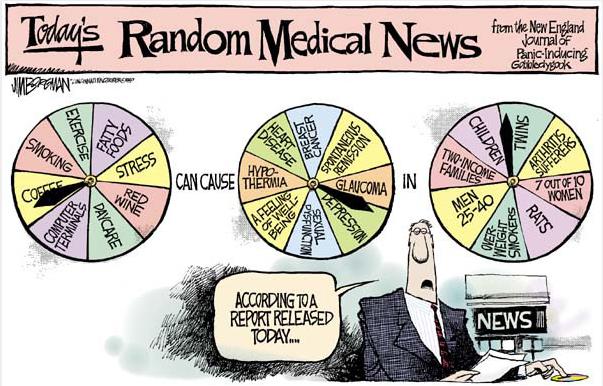Hi everyone, I am new here but I have a lot of experience in other forums. I see this community is really research hungry and always looking for new stuff. It's great! I have a bit of background with research, mostly reading and understanding (a little bit of doing), so I though of bringing the popular the "research vs evidence" topic for discussion.
Research/Studies
The first thing I learned is that there is A LOT of research going on. People live out of doing research and, like in any profession, not everyone is good and trustworthy. There are many mistakes a group of researchers can do that would mess up their results (sample size, correlation, causation etc) . Plus there are many thing they can play with (statistics!) that can mask/fake the numbers.
For this reason, when a piece of research is sent to be published, the journal/magazine receiving will look for those errors and do their best to only publish the best they can get their hand on. Naturally, as magazines/journals are also a business we can safely say there are good ones and bad ones. The good ones have more option sent to them and more (and better) people reading and filtering out the bad stuff. It's rare, but occasionally good magazines/journals publishes a study with major errors. Example: retractionwatch.com/2012/06...
With that in mind I think it is safe to say that the results from one research don't prove anything. The real cool thing happens when another independent group of researcher reproduces what was done by the first - they can do that if the original researchers properly wrote down their methods. When research is reproduced it can generate completely different results (Crazy, right?) and that is an indication that something went wrong.
In summary, I think research studies are exciting and interesting. But, unfortunately we cannot really make safe health decisions based in a couple of medical/health article (specially those published by unknown journals/magazines!).
Evidence
On the other hand, good evidence in healthcare is much harder to get. Good or strong evidence happens when you have several well designed studies saying the same thing over and over. It is not to say that evidence base health recommendations never change (they might). But, since they rely on so many people agreeing and saying the same thing it takes time.
There are also levels of evidence in healthcare, depending on how good or how much research we have in a certain topic. Lower levels of evidence are just like not having evidence at all. Like when looking at a couple of research studies.
You can visualise what I mean by looking at this very cool interactive infographic on "Scientific evidence for popular health supplements": informationisbeautiful.net/... ENJOY!
What about proof?
The concept of "scientific proof" is controversial. The expression "scientific proof" is often used by journalists, but many scientists argue that there is not such a thing....
Image by Jim Borgman
